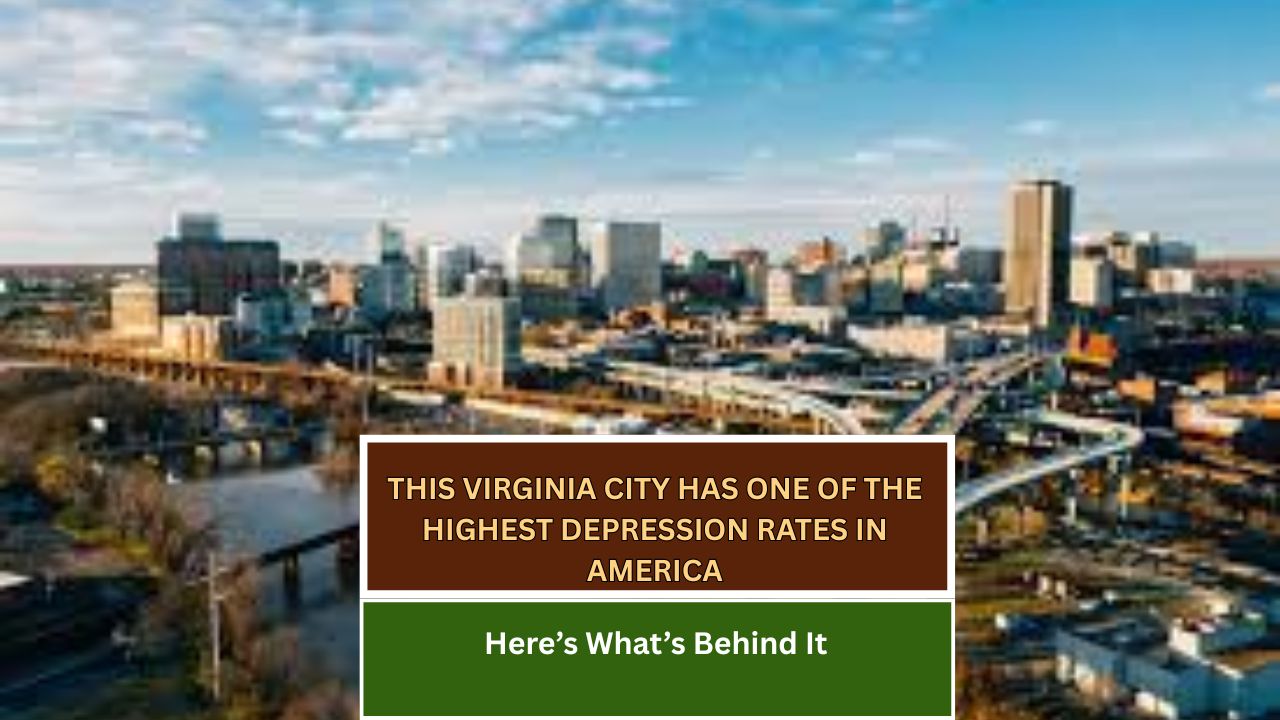A growing mental health crisis is impacting Tennessee at a troubling pace. According to data from the Centers for Disease Control and Prevention (CDC), several cities in Tennessee, including McMinnville, Elizabethton, and Knoxville, report some of the highest adult depression rates in the United States.
The data, originally analyzed by Stacker using CDC Behavioral Risk Factor Surveillance System (BRFSS) surveys, highlights that over 31% of adults in McMinnville and Elizabethton have been diagnosed with depression — far exceeding the national average.
Depression Hotspots in Tennessee
The top Tennessee cities by percentage of adults diagnosed with depression are as follows:
- McMinnville: 31.5%
- Elizabethton: 31.5%
- Bristol: 31.0%
- Lawrenceburg: 30.8%
- Kingsport: 30.7%
- Sevierville: 30.2%
- Martin: 30.0%
- Athens: 29.9%
- Crossville: 29.9%
- Union City: 29.8%
These statistics shed light on a larger issue—Tennessee’s statewide struggle with mental health. According to America’s Health Rankings, Tennessee ranks 47th in the U.S. for depression prevalence, with 27.3% of adults reporting a formal diagnosis of depressive disorder.
Knoxville: A Major Urban Case Study
In addition to rural hotspots, Knoxville ranks third in the U.S. for depression prevalence among major cities, based on a survey featured by WBIR News. Though mental health care is technically available in the city, numerous residents cite challenges accessing services due to affordability, stigma, and lack of insurance.
Why Are Depression Rates So High in Tennessee?
Experts suggest a combination of socioeconomic and health-related issues may be driving the numbers upward:
- Economic instability and poverty, especially in Appalachian regions
- Limited access to affordable healthcare, particularly in rural areas
- High rates of chronic physical illness, which are closely linked to mental health
- Social isolation and substance use disorders, both of which are prevalent in several regions of the state
Dr. Rhonda Randall, a senior advisor at United Health Foundation, notes that “mental health is deeply interconnected with other health and social factors,” stressing that high depression rates often correlate with higher unemployment and chronic disease burdens.
What Is Being Done?
State-level initiatives have aimed to expand mental health access, including:
- The Tennessee Department of Mental Health & Substance Abuse Services (TDMHSAS) provides crisis support and community programs statewide.
- The Behavioral Health Safety Net of Tennessee offers outpatient mental health services to uninsured adults.
- National Suicide & Crisis Lifeline (988) is available for all U.S. residents facing emotional distress or suicidal thoughts. Visit 988lifeline.org.
Despite these efforts, Tennessee continues to face significant barriers related to funding, mental health stigma, and healthcare provider shortages.
Moving Forward
With depression affecting nearly 1 in 3 adults in some Tennessee towns, mental health advocacy has become a growing priority. Experts emphasize the need for increased funding, better integration of mental health into primary care, and targeted outreach in underserved communities.
If you or someone you know is struggling with depression or mental illness, seek help from a professional or contact the 988 Suicide & Crisis Lifeline for immediate support.
This article has been carefully fact-checked by our editorial team to ensure accuracy and eliminate any misleading information. We are committed to maintaining the highest standards of integrity in our content.

Outside of work, he enjoys playing chess, following cricket, and writing short stories. His commitment to integrity and in-depth analysis strengthens OTE News’ mission of providing trustworthy journalism.




